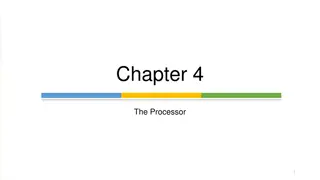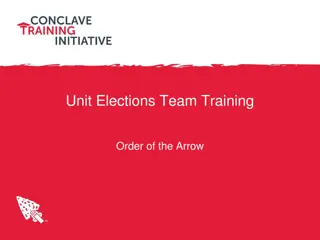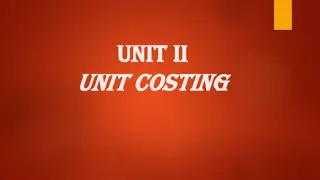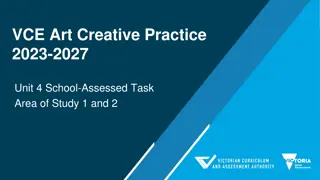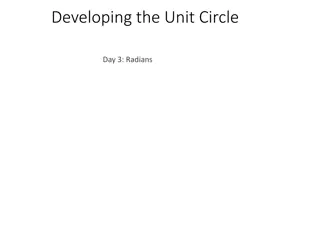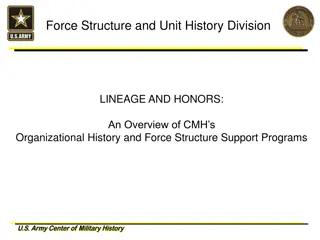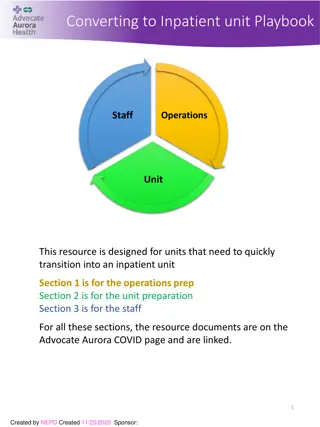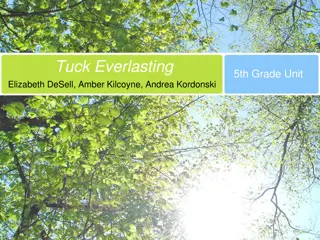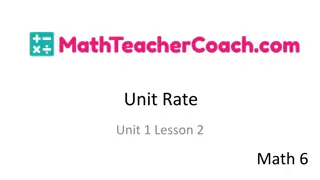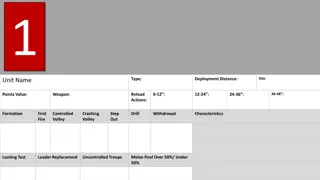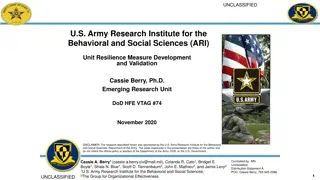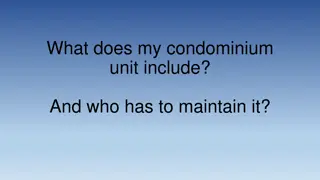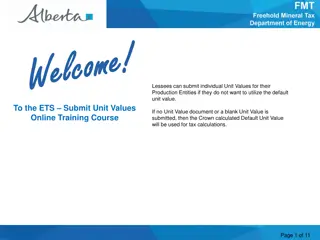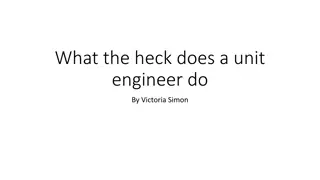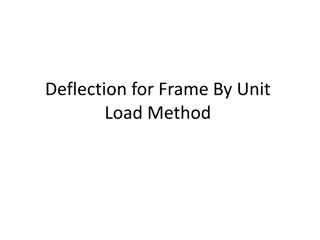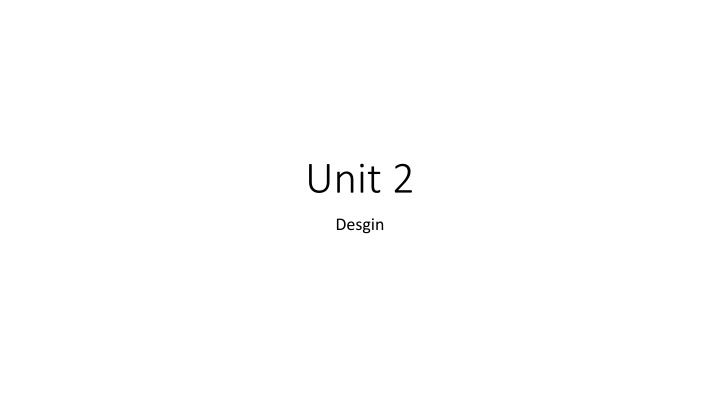
Artisan Trades and Challenges in Handmade Pottery Industry
Explore the world of artisans crafting pottery by hand, facing challenges like exploitation and income tax. Learn about the factors affecting their trade and the decline in traditional methods. Discover the beauty and significance of pottery in various cultures.
Download Presentation

Please find below an Image/Link to download the presentation.
The content on the website is provided AS IS for your information and personal use only. It may not be sold, licensed, or shared on other websites without obtaining consent from the author. If you encounter any issues during the download, it is possible that the publisher has removed the file from their server.
You are allowed to download the files provided on this website for personal or commercial use, subject to the condition that they are used lawfully. All files are the property of their respective owners.
The content on the website is provided AS IS for your information and personal use only. It may not be sold, licensed, or shared on other websites without obtaining consent from the author.
E N D
Presentation Transcript
Unit 2 Desgin
Artisan Meaning: A skilled worker who makes things by hand, often using traditional methods. Part of Speech: Noun Example: The artisan crafted a beautiful necklace from silver and beads.
decline Meaning: To decrease in quantity, quality, or importance, or to reject something. Part of Speech: Verb Example: The company had to decline the offer because it wasn't profitable.
Factor Meaning: An element or cause that contributes to a particular situation. Part of Speech: Noun Example: "Another important factor is the high tax" (referring to taxes as an important cause of the challenges faced by artisans).
Income Tax Meaning: A tax paid by individuals or businesses based on their income. Part of Speech: Noun Example: "Artisans have to pay 102 Tunisian Dinars in income tax" (referring to the tax paid by the workers).
Pottery Meaning: Objects made of clay and shaped by hand or machine, often including items like pots, vases, and bowls. Part of Speech: Noun Example: "The town of Nabeul is famous for its pottery" (referring to handmade ceramic items produced in that area).
Exploit Meaning: To use someone or something unfairly for one's own benefit, often by taking advantage of their weaknesses or labor. Part of Speech: Verb Example: "The richer pottery traders control everything and exploit artisans" (meaning they take advantage of the artisans by paying them poorly and controlling the market).
Trades Meaning: Refers to the business or occupation involving the buying and selling of goods, in this case, pottery. It can also refer to the people involved in those businesses, such as pottery traders. Part of Speech: Noun Example: "The richer pottery traders control everything" (meaning the people involved in the pottery business are controlling the market).
In the pottery industry in Tunisia, there are too many cheap imports and high taxes. Answer: T (True) The video mentions that large companies and foreign imports are filling the market with cheaper products, and artisans have to pay high taxes. The tax the potters have to pay is around 78 U.S. dollars a month. Answer: T (True) The video states that artisans have to pay 102 Tunisian Dinars, which is around 78 U.S. dollars a month in income tax. They compete with the cheaper imports by exporting their own pottery at lower prices. Answer: F (False) The video mentions that some believe the Tunisian pottery industry can compete by providing high-quality products within Tunisia, but there is no mention of exporting pottery at lower prices. The artisans want the government to help them. Answer: T (True) The video concludes with artisans hoping for help from the Tunisian government so they can compete with large pottery traders and cheap international imports.
Flaw Flaw (noun) Meaning: A small imperfection or mistake that shows something is not perfect. Example: Some Persian rug makers include a deliberate flaw in their work to remind themselves that nothing is perfect.
Imitate Imitate (verb) Meaning: To copy something or do something in the same way as another. Example: Some modern ceramics imitate kintsugi patterns even though the original was never broken.
Incident Incident (noun) Meaning: An event, often unusual or important. Example: The incident of the broken bowl led the ruler to appreciate its strength and beauty.
Modest Modest (adjective) Meaning: Having a humble view of one s own achievements or abilities. Example: The Persian rug makers include a small flaw in their carpets as a sign of being modest.
Piece Piece (noun) Meaning: A part of something or a complete work of art. Example: The broken pieces of pottery are mended with gold in the art of kintsugi.
Practice Practice (noun) Meaning: A method or way of doing something, often a tradition. Example: The practice of kintsugi teaches that broken objects can become more valuable.
Smash Smash (verb) Meaning: To break something into pieces with force. Example: The servant accidentally smashed the ruler s favorite bowl into five pieces.
Value Value (noun) Meaning: The importance or worth of something. Example: The value of kintsugi pottery increases because of its unique golden repairs.
Deliberately Deliberately (adverb) Meaning: Done on purpose; intentionally. Example: Persian rug makers deliberately include a small flaw to remind themselves that nothing is perfect.
Exhibits Exhibits (noun, plural) Meaning: Objects displayed in a museum or gallery for people to see. Example: Pieces of kintsugi pottery can be enormously expensive and are featured in museum exhibits in Japan and overseas.
Settlers Settlers (noun, plural) Meaning: People who move to a new area and establish a community. Example: Some early American settlers, known as the Puritans, included a humility square in their quilts as a reminder of imperfection.
Lacquer Lacquer (noun & verb) Meaning (noun): A liquid that dries to form a hard, shiny coating used to protect or decorate objects, especially wood or pottery. Meaning (verb): To apply lacquer to something. Example (noun): The craftsmen used gold lacquer to mend the broken pieces of pottery in the kintsugi tradition. Example (verb): The artist carefully lacquered the wooden surface to give it a smooth and glossy finish.
Explanation: Paraphrasing involves expressing the same idea in different words. The passage provides two methods for doing this: Using Synonyms: Example: habit custom Instead of repeating "habit," the writer replaces it with "custom" to avoid redundancy. Using Different Word Forms: Example: broke (verb) break (noun) broken (adjective) The sentence transforms "broke" into "break" (a noun) and "broken" (an adjective) while keeping the meaning the same.
Delicate Meaning: Lightweight or fragile; easily broken. Part of Speech: Adjective. Example: The delicate glass vase shattered when it fell.
Entirely Meaning: Completely; totally. Part of Speech: Adverb. Example: The project was completed entirely by the students.
Functional Meaning: Useful; practical; not decorative. Part of Speech: Adjective. Example: The new office furniture is highly functional and ergonomic.
Harm Meaning: To damage, injure, or hurt something or someone. Part of Speech: Verb. Example: Smoking can harm your lungs over time.
Objection Meaning: An expression of disagreement or disapproval. Part of Speech: Noun. Example: The council members raised an objection to the proposed changes.
On good terms with Meaning: Friendly to; getting along well with. Part of Speech: Phrase. Example: She is on good terms with her colleagues at work.
Romantic Meaning: An idealistic impression. Part of Speech: Adjective. Example: They went on a romantic date by the seaside.
Thick Thick Meaning: Heavy; the opposite of thin. Part of Speech: Adjective. Example: The walls in this building are very thick and soundproof.
Ubiquitous Part of Speech: Adjective Meaning: Present, appearing, or found everywhere. Pronunciation: /ju b kw t s/ Example: Smartphones have become ubiquitous in modern society.
Anomaly Anomaly Part of Speech: Noun Meaning: Something that deviates from what is standard, normal, or expected. Pronunciation: / n m li/ Example: The scientist found an anomaly in the test results.
Nuance Part of Speech: Noun Meaning: A subtle difference in meaning, expression, or sound. Pronunciation: / nju ns/ Example: The artist captured the nuances of light and shadow in the painting.
Ephemeral Part of Speech: Adjective Meaning: Lasting for a very short time. Pronunciation: / f m r l/ Example: The beauty of the sunset was ephemeral but breathtaking.
Plethora Part of Speech: Noun Meaning: A large or excessive amount of something. Pronunciation: / pl r / Example: There was a plethora of food at the party.
What are Conditional Sentences? Conditional sentences describe a cause-and-effect relationship between two events: The condition (IF clause) describes a situation The result (Main clause) describes what happens if the condition is met There are five types of conditionals: Zero Conditional General truths First Conditional Real future possibility Second Conditional Hypothetical present/future Third Conditional Hypothetical past Mixed Conditionals Past Present or Present Past connections
Zero Conditional General Truths & Scientific Facts Structure: If + Present Simple Present Simple Usage: Used for: Scientific facts General truths Fixed laws of nature Examples: If you heat water to 100 C, it boils. (Scientific fact) If you don t water plants, they die. (General truth) If the sun sets, it gets dark. (Natural phenomenon) Common Errors: Wrong: If you will mix red and blue, it will make purple. Correct: If you mix red and blue, it makes purple.
First Conditional Real Future Possibility Structure: If + Present Simple Will + Base Verb Usage: Used for: Real and possible future situations Likely outcomes Examples: If it rains tomorrow, we will cancel the trip. (Future possibility) If you study hard, you will pass the exam. (Likely result) If she calls me, I will answer. (Expected action) Common Errors: Wrong: If you will study, you will pass. Correct: If you study, you will pass.
Second Conditional Hypothetical Present or Future Structure: Usage: Used for: If + Past Simple Would + Base Verb Hypothetical or imaginary situations Unreal present or future Examples: If I won the lottery, I would buy a mansion. (Unreal future) If she were taller, she could be a model. (Hypothetical present) If we had a spaceship, we would explore Mars. (Imaginary situation) Note: We use "were" instead of "was" in formal English: Correct: If I were you, I would take the job. Acceptable (informal): If I was you, I would take the job. Common Errors: Wrong: If I will be rich, I will buy a yacht. Correct: If I were rich, I would buy a yacht.
Third Conditional Hypothetical Past Structure: If + Past Perfect Would Have + Past Participle Usage: Used for: Regrets or hypothetical past situations Imagining how the past could have been different Examples: If I had studied harder, I would have passed the exam. (Regret) If they had left earlier, they wouldn t have missed the train. (Alternative past) If she had called me, I would have helped her. (Hypothetical past event) Common Errors: Wrong: If I studied harder, I would have passed. Correct: If I had studied harder, I would have passed.
Past Perfect Tense The Past Perfect is used to show that one past action happened before another past action. It helps clarify the sequence of past events.
Structure of the Past Perfect Affirmative: Subject + had + past participle (V3) She had finished her work before I arrived. They had already eaten when we got there. Negative: Subject + had not (hadn't) + past participle (V3) She had not finished her work before I arrived. They hadn't eaten before we arrived. Question Form: Had + subject + past participle (V3)? Had she finished her work before you arrived? Had they eaten before you got there?
When Do We Use the Past Perfect? To Show the Earlier of Two Past Actions The past perfect shows that one event happened before another in the past. When I arrived, she had already left. (= She left before I arrived.) By the time we got to the station, the train had already departed. (= The train left before we arrived.) Common Mistake: When I arrived, she left. (This is unclear.) When I arrived, she had already left. (This is correct.)
To Describe Past Causes and Effects The past perfect explains why something happened in the past. He had studied a lot, so he passed the exam. (= The studying happened before the exam.) She was tired because she had not slept well. Common Mistake: I was tired because I didn t sleep. (This suggests the actions happened at the same time.) I was tired because I had not slept well. (This is correct.)
To Talk About Experiences Before a Specific Past Time The past perfect is used when talking about life experiences before a point in the past. I had never seen such a beautiful place before I visited Paris. She had never eaten sushi before she traveled to Japan. Common Mistake: Before I visited Paris, I never saw such a beautiful place. Before I visited Paris, I had never seen such a beautiful place.


